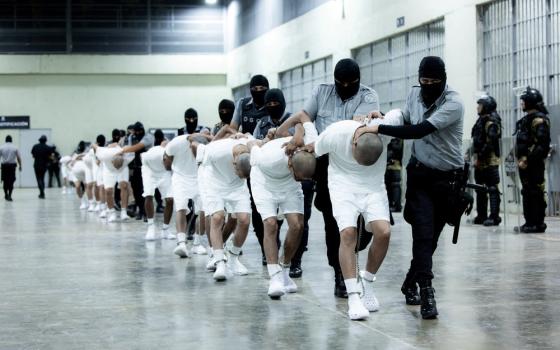Picking the best man for president and voting for the best candidates for other elected offices might seem easy -- that is, if you're a single-issue person.
For instance, if the economy or the issue of abortion is what's driving you to the polls, then the choices might appear to be quite clear for you. But even here, there's more that needs to be considered than just simply liking what a candidate says.
A politician's record, not rhetoric, is what really counts. And even if a politician has proved his or her commitment to the issue of concern, how much will that person likely be able to accomplish?
A governor has to win the approval of the majority of the legislature. The president needs the consent of most of Congress. And even Supreme Court justices appointed by the president can change (and have sometimes changed) their positions on issues once they have been seated on the bench.
Voting for a candidate who will probably not be in a strong position to significantly move a particular issue forward might make one feel good, but it won't make much difference.
Furthermore, many politicians who support the Catholic church's stand on one issue often work against the church on other issues.
Single-issue voting has serious flaws and is not the Catholic position. Instead, Catholics are called to consider the big picture.
"As Catholics we are not single-issue voters," the U.S. bishops write in "Forming Consciences for a Faithful Citizenship." "A candidate's position on a single issue is not sufficient to guarantee a voter's support."
Respect Life Month puts the spotlight on Catholic social teaching, which instructs us to work and vote for the protection of all life, especially the poor and vulnerable.
Not just the unborn, not just the poor, not just the hungry, not just the homeless, not just the war-torn, not just the undocumented, not just the medically uninsured, not just condemned prisoners, not just the environment, and not just future generations, but all of the above deserve our care. Everyone's life and dignity needs to be fully protected and respected.
The social doctrine of the Catholic church links social justice, peace and pro-life issues -- it doesn't rank them.
In his powerful encyclical "Evangelium Vitae" ("The Gospel of Life"), Blessed Pope John Paul II is crystal clear on this. He wrote, "As disciples of Jesus, we are called to become neighbors to everyone (cf. Lk. 10:29-37) and to show special favor to those who are poorest, most alone and most in need. In helping the hungry, the thirsty, the foreigner, the naked, the sick, the imprisoned -- as well as the child in the womb and the old person who is suffering or near death -- we have the opportunity to serve Jesus. ...
"Where life is involved, the service of charity must be profoundly consistent. It cannot tolerate bias or discrimination, for human life is sacred and inviolable at every stage and in every situation; it is an indivisible good. We need then to 'show care' for all life and for the life of everyone."
Sadly, since very few politicians are committed to caring for all life and the life of everyone, our morally difficult task is to try to figure out who is going to do the most good for the most people -- especially the vulnerable and poor -- and the least harm.
[Tony Magliano is an internationally syndicated social justice and peace columnist.]




